
We pray that we may remember, even today, that the risen and glorious Christ is the deep source of our hope, certain we will never lack his help to bring to completion the mission entrusted to us. Lord hear us.

We pray that we may remember, even today, that the risen and glorious Christ is the deep source of our hope, certain we will never lack his help to bring to completion the mission entrusted to us. Lord hear us.
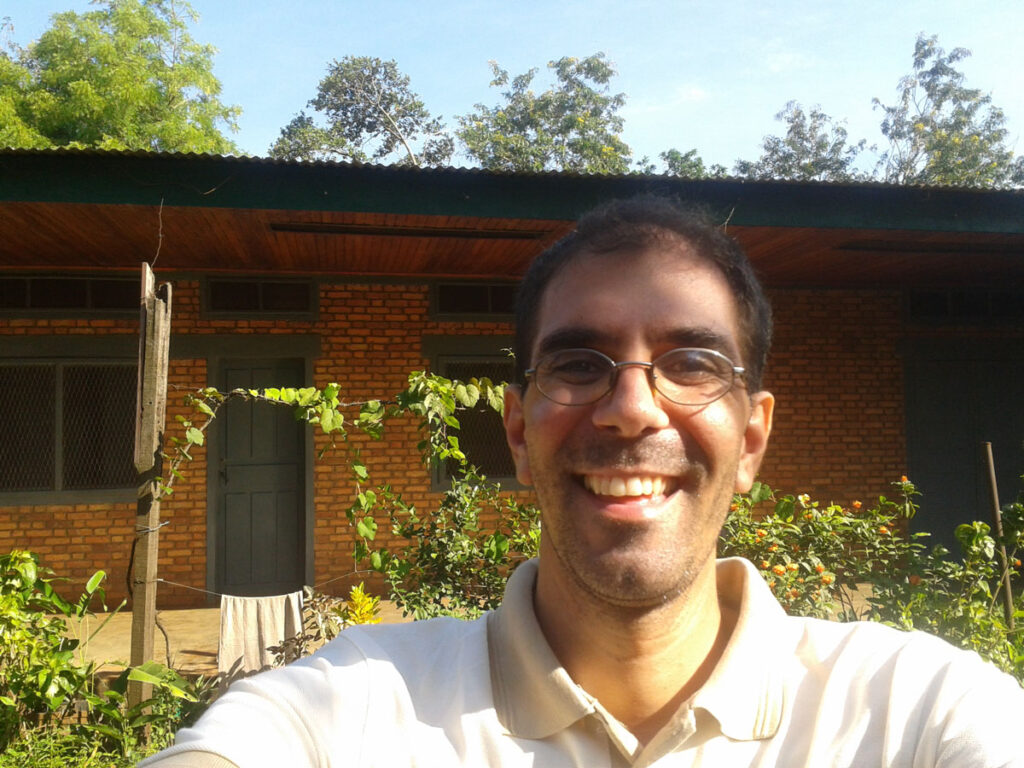
Hi, I’m Simone and I’m a Comboni Lay Missionary (CLM). I returned on September 10, 2020, after 1300 days of missionary experience in Mongoumba in Central African Republic with the pygmy people, supported by “my” CLM territorial group of Venegono Superiore, in agreement with the national coordination of the LMC, the Comboni provincial council of Italy and the Comboni community present, on January 21, 2022 I arrived in Castel Volturno and… here too there is a MISSION!!!
The parish of the Comboni Missionaries in Castel Volturno has been stable for 25 years now, started back on January 1, 1997 with Fr. Giorgio Poletti, now there are Fr. Daniele Moschetti and Fr. Sergio Agustoni who are introducing me to the life of the mission with patience and calm, telling me the history of the community and introducing me to the people who work with them. It is a new experience the presence of an LMC in a community of Comboni Fathers, but even more, it is a new opportunity to be on a mission within the geographical boundaries of Italy, because, as Pope Francis often repeats, the mission is no longer to be understood in a geographical sense, but it is to go out into the existential peripheries of humanity so … here too there is a MISSION!!!
Because of the short amount of time that has passed, I cannot say much, but the reality of Castel Volturno is complex and presents dynamics that are typical of Africa, due to the strong presence in the area of men and women from that continent, as well as Afro-descendant boys and girls, born in Italy, not recognized by the law, who go to local schools and speak Italian, albeit with a typical Neapolitan cadence, to which are added all the difficulties of an area wounded by the illegality of the Camorra, by social and environmental degradation. The morning begins with Mass in the parish at 7:00 am with the 3 Franciscan Sisters of the Sacred Heart: Sr. Liberty, Sr. Nelly and Sr. Joselyn who come from the Philippines and carry out their service in the Migrantes Center with the guests welcomed. If the morning sometimes has a bland pace, the afternoon, as they say, flies by!!! Every day, I spend it at the Black & White Center in Destra Volturno with the 50 or so children who come for after-school tutoring from 3-7pm. We don’t just do homework, because on Tuesdays we are supposed to start theater, on Wednesdays we already do sports, on Thursdays art with Dory and on Fridays we see a movie. In just a few weeks, I have already met many people who gravitate around the Comboni community of Castel Volturno: the Black & White educators, the team of the Diocesan Missionary Center of Capua, the director of the Migrantes Center and the hosted kids, the youth and teenagers of the Santa Maria dell’Aiuto parish, the SUAM group of Campania, the boys and girls of the INFORMARE magazine editorial staff, the Ukrainian community that celebrates Sunday Mass with their rite, the priests of the Forania of Lower Volturno, the scholastics Daniel and Jerry who come from Casavatore on weekends, the volunteers of the parish of the Food Bank, the young people of the Civil Service… all this myriad of people gives you an idea of the great ferment in Castel Volturno, because . … here too is MISSION!!!
I thought of telling this missionary experience in Castel Volturno with some short films called VOLT CAST, the name reminds us of the famous podcasts to listen to that are gaining ground in the world of communication, but VOLT CAST are to be seen, watched and looked at, the intent is to show the faces of this reality, because behind a face there is a story, there is the person, there is the whole life, with all its joys and difficulties, to tell and show this reality of existential periphery of humanity, because … here too is MISSION!!!
Simone, CLM Italy
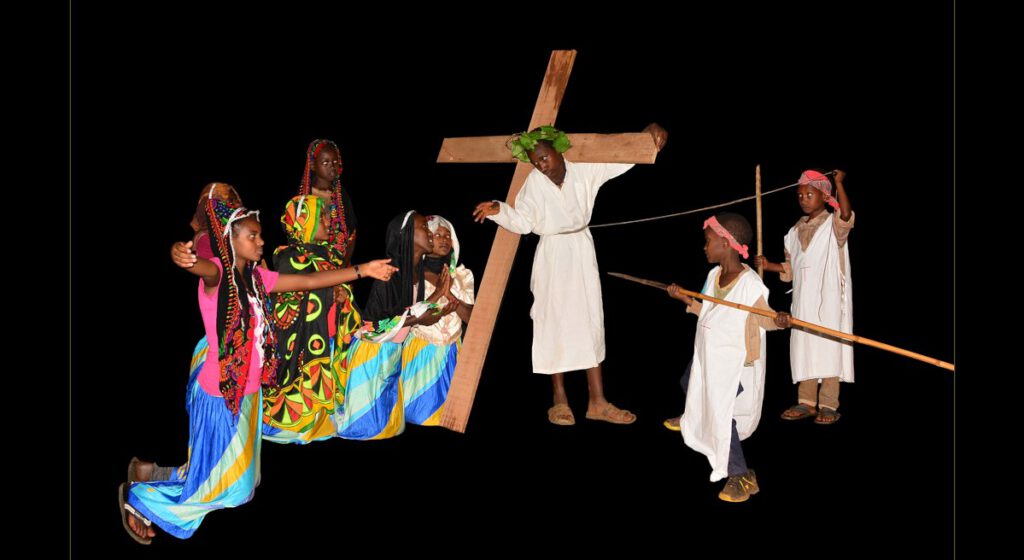
The cross is “foolishness” for those who do not understand it… said St. Paul (1 Cor 1:18). Here we publish a Way of the Cross with 14 phrases by Saint Daniele Comboni on Jesus’ journey to the cross. Comboni deeply understood the “scandal” involved in seeing Jesus on the cross: he saw it as a necessary means for evangelization and as a reality that his missionaries had to embrace in order to continue God’s saving work in the world. What Comboni says is very strong and even scandalous in our day, but in these words of his we can find light and wisdom for our missionary life. [comboni.org].
Father Pedro Pablo Hernández
Last weekend we celebrated the VII Meeting of the Comboni Family in Spain. We have experienced the joy of reuniting and we have verified that the missionary dream of following our vocation as a family (religious, men and women religious, lay and secular Comboni Missionaries) is renewed.
The house of the Comboni Missionaries in Madrid welcomed this group of 30 people belonging to the various communities of CMS, MCCJ and CLM in Spain. The Comboni Seculars could not be present on this occasion. Pietro Ciuciulla, of the MCCJ General Council, as well as the leaders of the 3 branches present and Alberto de la Portilla, Coordinator of the CLM Central Committee.
The focus of the meeting was to accompany, through reflection and prayer, the 150th anniversary of the foundation of our Comboni Missionary Sisters. Prado Fernandez led the presentation of the history of the first Comboni Sisters who accompanied St. Daniel on his first journeys, marked by the Cross as victims of the Mahdia, the revolt that devastated the first Comboni works in Sudan and marked from the beginning the vocation of the CMS.
From his first intuition, Comboni dreamed of a family, for his first journey counted on lay missionaries and on these courageous and forward-looking women as mission companions. In the course of its history, the witness of the sisters consolidates the liberating impulse of women in all latitudes. Rereading those early sufferings launches us into the challenges of the present moment. And we renew our awareness that today the Comboni charism is actualized through the Comboni Family. Fr. Pietro insisted on this when commenting on the inspiring document of the General Councils of the Comboni Family of 2017: “The charism grows and is renewed when it is shared with others who recreate it in the peculiarity of each style of Christian life”.
In this spirit, the Map of the Ministeriality of the Comboni Family, was presented, which gathers more than 200 missionary presences in the world, with tremendous vitality in the most diverse contexts, educational, health, social, pastoral, transforming impact… The mission is understood today from the ministeriality, from the service to the people in these various areas. This integral mission of the Church must integrate service, accompaniment, reflection, sensitization and social transformation in the process.
The mission process

Taken from Fr. Alvarez SJ
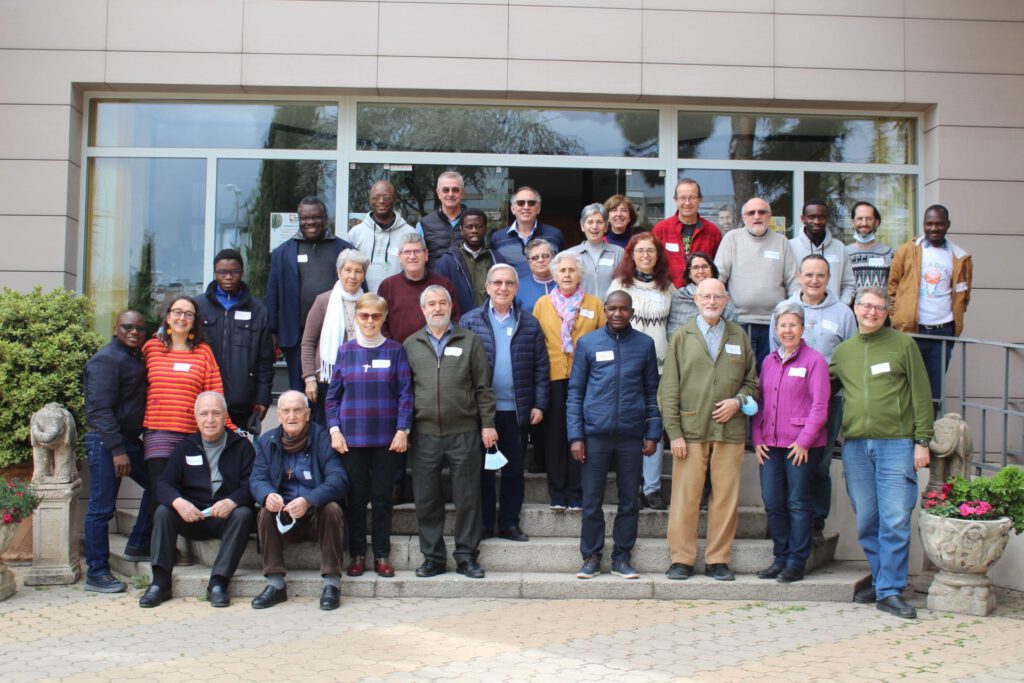
In the final part of the meeting, the leaders of the 3 branches present shared the current situation of their organizations, with various challenges and hopes. This 2022 coincides for the first time the General Chapter of CMS and MCCJ. It is a moment of special density, to remain faithful to the vocation that is carried out in new ways, with new means. A moment in which we renew the intuition to continue dreaming together how to develop the Comboni mission in the world.
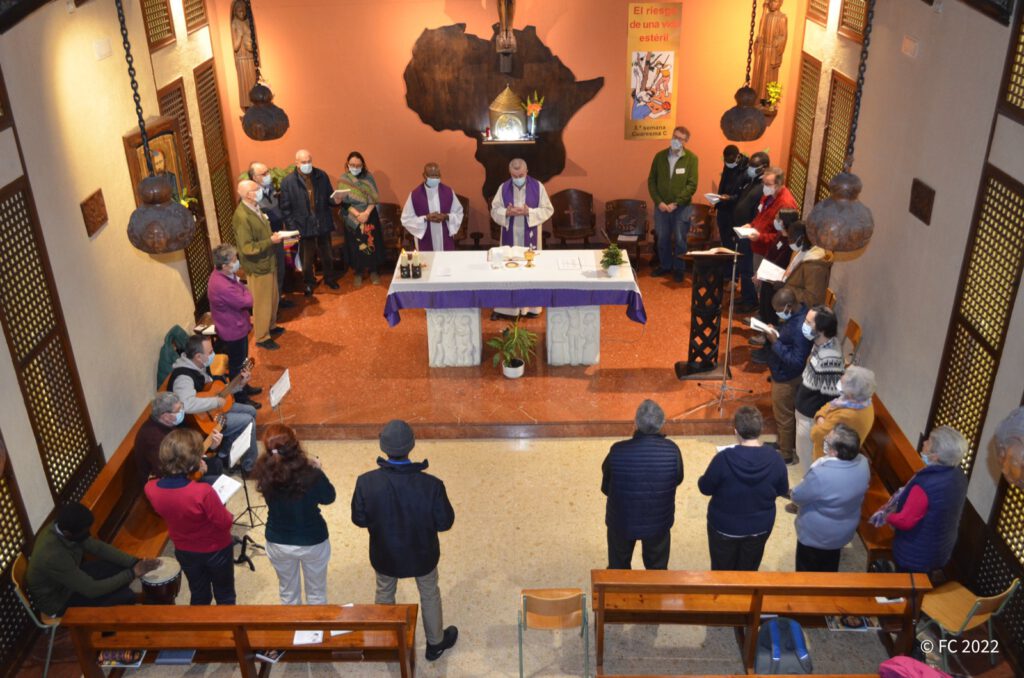
Gonzalo Violero, CLM Spain

After lowering the incidence by the number of cases of Covid we returned to have our face-to-face meeting in Granada the CLM of southern Spain. Always respecting the use of masks and ventilation indoors but looking forward to meet again and share.
This weekend we also have the presence of several candidates.
In these cases we divided the meeting into several moments. In some we were all together and in others separated in order to advance in the different things that we established for ourselves.
We began with a time of prayer where we put ourselves in the presence of the Lord, pray for the reality that surrounds us and give thanks for it.
On Saturday morning we were all together sharing a topic on Comboni Spirituality (CLM, candidates and some Comboni Fathers). It was a nice time where we could share how our spirituality marks our vocation and many of our life experiences. Spirituality is nourishment and sustenance in our choices and supports us in difficult moments and in making important decisions.
In the afternoon we went to celebrate with the Comboni Sisters the 150th anniversary of the foundation of the Institute. They had prepared a very nice event where 4 of them presented the importance of women and the mission from various points of view. It was nice how, without having foreseen it previously, they spoke about many of the things we had discussed in the morning, illuminating it with their life experience as Comboni Missionary Sisters.
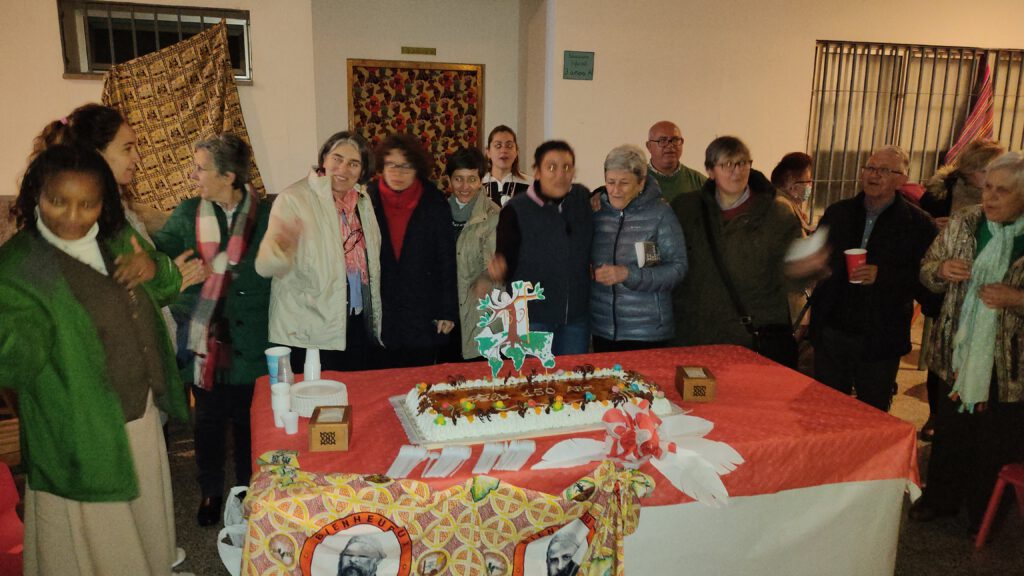
Later we went to celebrate a Eucharist of thanksgiving in the parish where they are present for these years and ended the evening with a fraternal agape.
On Sunday, in addition to the time of prayer, we divided to work in parallel CLM and candidates. On the one hand to work on future commitments and review life as a community and on the other hand the candidates had the missionary testimony of Carmen Aranda in Uganda.
We ended with different topics, among others the campaign about our opening of missions in Kenya and Mozambique and the next meetings.

A very well spent and beautiful weekend.
Alberto, CLM Spain
We leave here the video that the Comboni Sisters put at the beginning of their talk that explains very well these years of the institute and the illusion to continue walking at the service of the mission.